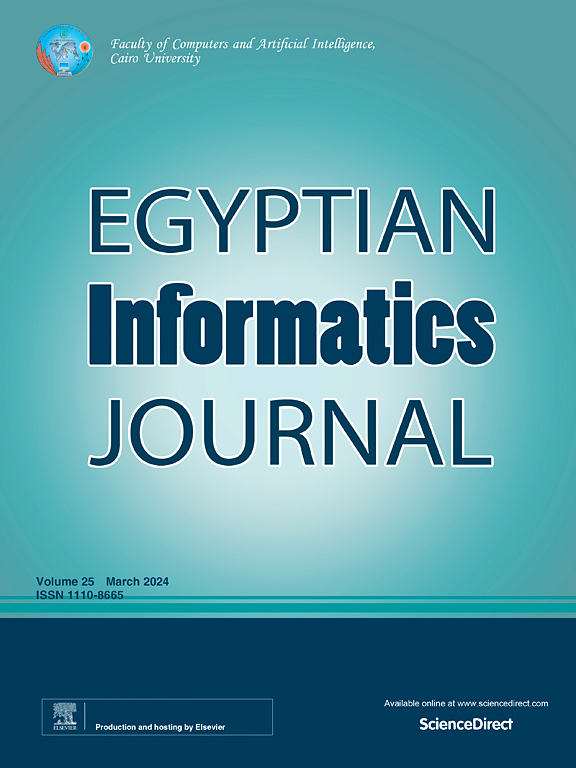A multi-module approach to evaluate online teaching quality in international Chinese education
IF 4.3
3区 计算机科学
Q1 COMPUTER SCIENCE, ARTIFICIAL INTELLIGENCE
引用次数: 0
Abstract
The Quality of Online Teaching in International Chinese Education (OTICE) introduces a cutting-edge approach to distance learning, making educational content accessible without limitations related to age, gender, ethnicity, or location. This research aims to establish a robust evaluation framework with high predictive accuracy for assessing OTICE by leveraging ensemble and deep learning techniques. The study explores key questions surrounding sentiment analysis within educational data. Initially, we design an index system and determine evaluation based an online questionnaires framework for OTICE, while simultaneously compiling online data for corpus development. Subsequently, we create the Multi-Module Architecture Driven Model (MMADM), which integrates a 3D-CNN module, a gated mechanism, and a selection module. Across all evaluated setups, combining a gated mechanism with Bag of Words (BoW) and a Word2Vector (W2V) word-embedding model based on the skip-gram approach delivers the highest predictive performance. Empirical findings confirm that deep learning models outperform ensemble learning techniques in the context of educational data mining. Moreover, comparative model analysis reveals that the 3D-CNN module paired with the gated mechanism produces optimal results, achieving precision (P) and F1 scores of 97.91% and 97.90%, respectively. Compared to other models, the overall performance improves by 3% to 5%. These findings underscore the superiority of the proposed model in addressing the OTICE standard task objectives presented in this paper.
国际汉语在线教学质量评价的多模块方法
汉语国际教育在线教学质量(OTICE)引入了一种先进的远程学习方法,使教育内容不受年龄、性别、种族或地点的限制。本研究旨在利用集合和深度学习技术,建立一个具有高预测准确性的稳健评估框架,用于评估 OTICE。本研究探讨了与教育数据中的情感分析有关的关键问题。首先,我们设计了一个指标体系,并确定了基于在线问卷框架的 OTICE 评估,同时为语料库开发编制了在线数据。随后,我们创建了多模块架构驱动模型(MMADM),该模型集成了 3D-CNN 模块、门控机制和选择模块。在所有评估设置中,将门控机制与词袋(BoW)和基于跳格方法的单词2向量(W2V)单词嵌入模型相结合,可实现最高的预测性能。实证研究结果证实,在教育数据挖掘方面,深度学习模型优于集合学习技术。此外,对比模型分析表明,3D-CNN 模块与门控机制搭配能产生最佳结果,精确度(P)和 F1 分数分别达到 97.91% 和 97.90%。与其他模型相比,整体性能提高了 3% 至 5%。这些发现凸显了本文提出的模型在实现 OTICE 标准任务目标方面的优越性。
本文章由计算机程序翻译,如有差异,请以英文原文为准。
求助全文
约1分钟内获得全文
求助全文
来源期刊

Egyptian Informatics Journal
Decision Sciences-Management Science and Operations Research
CiteScore
11.10
自引率
1.90%
发文量
59
审稿时长
110 days
期刊介绍:
The Egyptian Informatics Journal is published by the Faculty of Computers and Artificial Intelligence, Cairo University. This Journal provides a forum for the state-of-the-art research and development in the fields of computing, including computer sciences, information technologies, information systems, operations research and decision support. Innovative and not-previously-published work in subjects covered by the Journal is encouraged to be submitted, whether from academic, research or commercial sources.
 求助内容:
求助内容: 应助结果提醒方式:
应助结果提醒方式:


